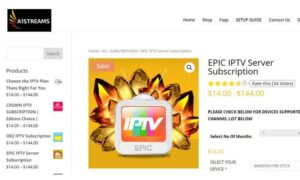Among the emerging course options today, this programme of study stands a chance owing to the evolving techno-legal issues in the area of science and information technology. As a number of companies are pooling-in their resources to carry out research and development, there is a rising demand to protect the intellectual property rights. The programme offers a comprehensive knowledge in how to handle the complicated techno-legal problems in the energy domain and the allied sectors.
Job Opportunities
There are a variety of career options for people pursuing B. Tech. Energy Technology and LLB Honours with specialization in Intellectual Property Rights (IPR). Training lawyers can find opportunities in many fields after choosing to go for the respective specializations. They may look for jobs in technology transfer, IPR protection, energy, technology-based arbitration and as patent attorneys.
Subject Areas to Focus Upon
Before, diving into a sea of jobs, students must enroll for a comprehensive 6-year study in the relevant discipline. The main topics to be covered in the curriculum include computer science, engineering graphics, environmental studies, workshop technology, basic electrical engineering and energy scenario and forms. In addition, the important subjects to be taken up are fundamentals of moot court, thermodynamics and heat engines, material and energy flow computation, DBMS and data modelling and numerical analysis.
Apart from the above, understanding of electronic engineering, legal history of courts, legal method and reasoning, fluid mechanics, material science, power systems, thermal power generation, heat and mass transfer process is necessary. Furthermore, they need to study law of contracts, torts and consumer protection law, combustion energy and technology, solar energy technology, alternate energy technologies, bio energy, constitutional law and family law.
Again, the knowledge is incomplete without energy management and audit, nuclear power generation, performance analysis of electrical equipment, nano technology, law of crimes and wind energy technology. Not enough, aspirants are imparted lessons in waste heat recovery and co-generation, thermal utilities, company law, law of copyrights and claims, project and financial management and hydro power generation.
Students who are going for studies in this discipline need to know about carbon trading, law of trademark and drafting, right to information, jurisprudence, taxation law and competition law. Also, they must know about information technology law, law of industrial and ICL designing, trade secret and technology transfer, IP litigation, professional ethics and pleading, drafting and conveyance. They should also have an idea about IP management and international trade law.
Admission Entrance Test
The admission criteria for getting enrolled in this course is through the UPESEAT entrance followed with a centralized counselling session with the successful aspirants. The other way to get into this stream is through a non-examination pathway that comprises CLAT merit or L-SAT India merit. Students featuring in the CLAT ranking up to 5,000 or having at least 60 percentile L-SAT score are exempted from taking the UPESEAT entrance and can get direct admission on merit.



